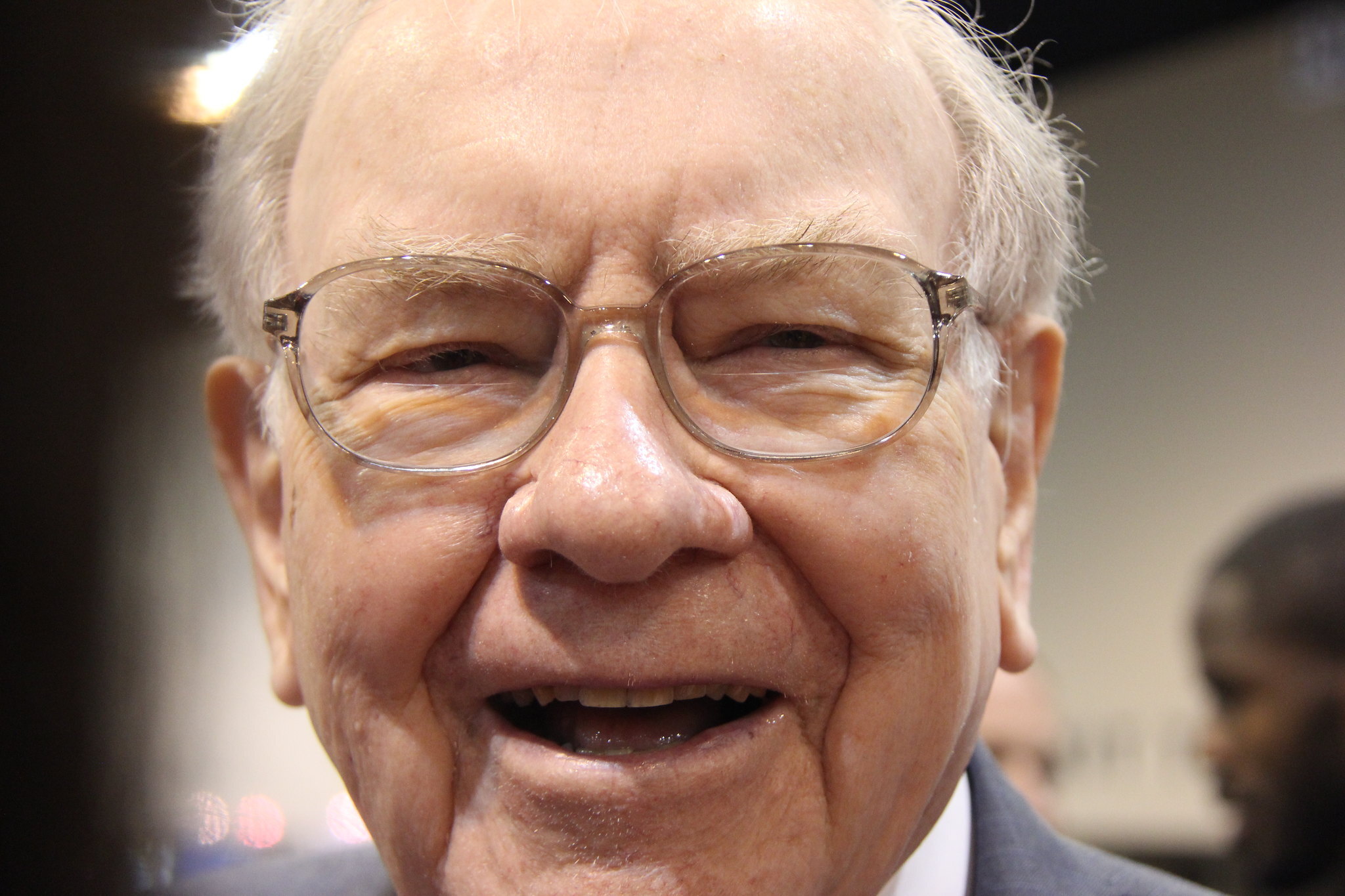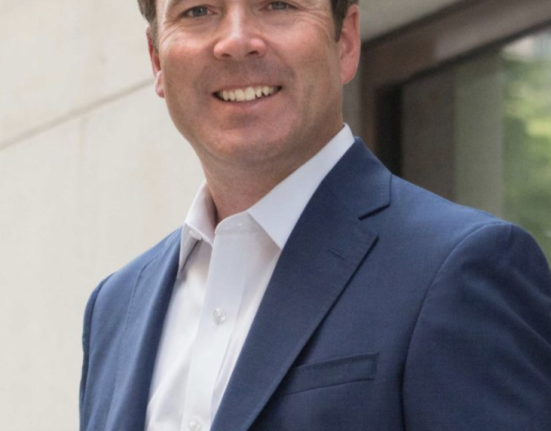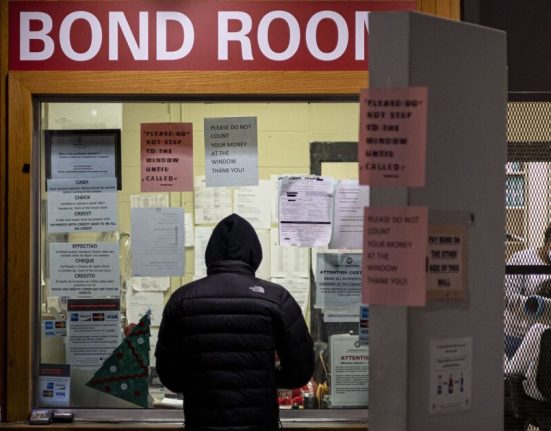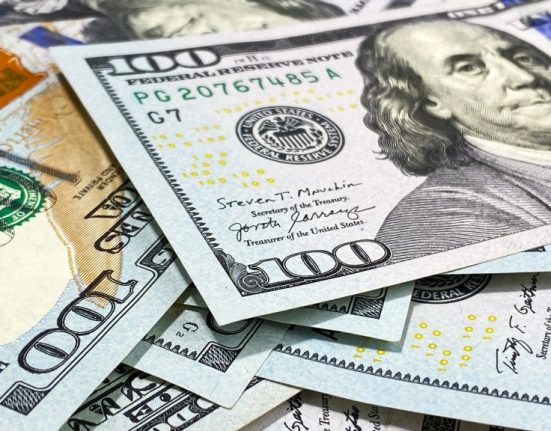For the first time since 2023, the Oracle of Omaha is using the confidential tag to build a stake in a company without investors knowing which stock it is.
There’s perhaps no event more anticipated by investors than the quarterly unveiling of what Berkshire Hathaway‘s (BRK.A 1.53%) (BRK.B 1.31%) mastermind CEO Warren Buffett has been up to on the investing front.
No later than 45 calendar days following the end to a quarter, institutional investors with at least $100 million in assets under management (AUM) are required to file Form 13F with the Securities and Exchange Commission. A 13F provides investors with a concise snapshot of what Wall Street’s leading money managers have been buying and selling. With the Oracle of Omaha overseeing nearly $287 billion in AUM at Berkshire Hathaway, his company is absolutely required to file a 13F.
The filing deadline for first-quarter trading activity was May 15 — and Buffett’s company has a knack for filing its 13F after the closing bell on the deadline day.
Berkshire Hathaway CEO Warren Buffett. Image source: The Motley Fool.
As Berkshire Hathaway’s first-quarter cash flow statement portended, it was a fairly active quarter. Buffett more than doubled his company’s stake in alcoholic beverage company Constellation Brands (STZ 2.67%) and continued to add to brand-name consumer favorite Domino’s Pizza. On the other hand, Berkshire’s chief further pared down his company’s stake in Bank of America (BAC 0.64%) and completely sold out of Citigroup.
But it’s not these now-published moves that are raising eyebrows on Wall Street. Rather, it’s the confidential treatment tag that was applied to Berkshire Hathaway’s latest 13F.
Warren Buffett is secretly building a position in a currently unknown company
From time to time, prominent money managers will request permission from regulators to forgo reporting the entirety of their respective funds’ trading activity in order to quietly build a position in one or more investments. Since investors tend to ride Buffett’s coattails and pile into any stock(s) he purchases, not disclosing which stock(s) he’s buying should allow the Oracle of Omaha to build up Berkshire’s stake at a more favorable price.
The last time Buffett leaned on the confidential treatment tag was following the midpoint of 2023. Berkshire’s 13Fs for the third and fourth quarters of 2023 pointed to Buffett secretly building up his company’s stake in a large financial stock, with Berkshire’s 13F for the first quarter of 2024 revealing this company to be property & casualty insurer Chubb (CB 0.76%). Buffett further increased Berkshire’s holdings in Chubb following the eventual reveal.
Prior to Chubb, Buffett’s reliance on confidential filings was rare. In 2020, he used this tag to quickly build multibillion-dollar positions in telecom titan Verizon Communications and integrated oil and gas giant Chevron, the latter of which remains one of Berkshire’s top-five holdings by market value. A decade ago, he also used a confidential filing to build up a stake in Phillips 66.
The all-important question is: Which stock(s) is Warren Buffett buying?
Though there’s no way to know this without direct word from the Oracle of Omaha himself or via Berkshire’s 13Fs, there are some clues that allow for educated guesses to be made.
The Oracle of Omaha left us some clues about the secret stock he’s buying for Berkshire
The biggest clue of what Berkshire’s head honcho is up to can be found in Berkshire Hathaway’s first-quarter operating results. On page 8, under “Investments in equity securities,” you’ll see a cost basis comparison between Dec. 31, 2024 and March 31, 2025 for three categories:
- Banks, insurance and finance: $15.707 billion cost basis on 12/31 vs. $14.268 billion on 3/31.
- Consumer products: $12.658 billion costs basis on 12/31 vs. $13.76 billion on 3/31.
- Commercial, industrial and other: $47.141 billion cost basis on 12/31 vs. $49.097 billion on 3/31.
The decline in financials directly corresponds to Buffett’s ongoing selling activity in Bank of America and the jettisoning of Citigroup stock. Meanwhile, the bulk of the cost-basis increase in consumer products can be explained by Berkshire acquiring approximately $1.1 billion worth of Constellation Brands in the March-ended quarter. Thus, Buffett’s confidential stock must reside in the “commercial, industrial and other” segment.
Since we don’t know the specific cost bases of most Berkshire investments, I “guestimated” (technical term here, folks) the average share price during the first quarter of the commercial and industrial companies Buffett’s company bought and sold. For example, I came up with Berkshire spending roughly $285 million to add to its stake in Pool Corp., along with around $36 million for Occidental Petroleum and approximately $21 million for HEICO.
Based on this data, it suggests Buffett spent north of $1.6 billion piling into this secret stock during the first quarter. Given that Berkshire would have to report stakes in excess of 5% of all outstanding shares in a company, this signals that Berkshire’s confidential stock is a large company — likely in excess of $50 billion in market cap.
The last tidbit of information we get is Warren Buffett’s unwavering desire to get a good deal. He’s such a diehard value investor that he’s gone cold turkey on buying back shares of his own company for nine consecutive months after spending nearly $78 billion to repurchase shares spanning 24 quarters (July 2018 – June 2024). You’d need to be looking for a company with a clear price dislocation amid a historically pricey stock market.
Image source: Getty Images.
This could very well be Warren Buffett’s confidential treatment stock
Admittedly, there are some broad-stroke assumptions to make here. For instance, while technology is encompassed under “other,” Buffett isn’t exactly tech savvy, which makes this sector highly unlikely. The same can be said for the healthcare sector.
Furthermore, taking into consideration how consistently Berkshire’s chief has added to “indefinite” holding Occidental Petroleum since the beginning of 2022, I’d shy away from the idea that it’s another drilling company that’s caught his attention. I believe this narrows things down even further to the industrial sector.
President Donald Trump’s tariff-induced market sell-off during the first quarter created a number of potentially intriguing entry points in industrial stocks for Buffett. The problem is there are three dozen industrial companies with market caps north of $50 billion, so it’s a bit hard to really narrow things down… until you get into valuation.
Only three industrial stocks have forward price-to-earnings (P/E) ratios below 15, which would be a minimum line in the sand for “value” and price dislocations in the current market:
- FedEx: forward P/E of 11.2
- United Parcel Service (UPS 0.85%): forward P/E of 12.5
- Paccar: forward P/E of 12.8
The one factor that keeps me from thinking it’s Paccar is simply the company’s share price, which has rocketed higher over the last three years. Thus, my thought process leads me to believe Buffett is intrigued by a big-time logistics player.
While FedEx is, currently, the cheaper of the two, based on forward P/E, it’s UPS — a former Berkshire Hathaway holding — that checks all the right boxes for Berkshire’s chief.
UPS stock was absolutely clobbered in late January when the company outlined plans to reduce its volume with its top customer, Amazon (AMZN 0.18%). Though this might sound a bit perplexing given the volume Amazon’s online marketplace can generate for a logistics giant like UPS, it makes perfect sense if you focus on the company’s longer-term vision. Whereas Amazon’s deliveries are generally low-margin, UPS aims to focus its attention on higher margin services. In other words, you have a clear price dislocation due to a short-term concern that doesn’t alter UPS’s long-term growth prospects.
UPS also offers a sustainable competitive edge given its well-known brown trucks and its network that no other logistics company has matched. Few things excite Buffett more than a price dislocation in a brand-name business with a moat.
The cherry on top is that UPS has a hearty capital-return program. It returned $5.9 billion to its shareholders last year through dividends and share repurchases, and has a dividend yield of 6.5%!
When Buffett sold Berkshire’s remaining UPS stake in 2023, shares of the company were hovering in the $170s or $180s. As of this writing, shares are trading hands for around $100, which is a level last seen consistently more than five years ago.
If I had to guess which company is the secret stock Warren Buffett is buying, I’d wager on a reunion with UPS.
John Mackey, former CEO of Whole Foods Market, an Amazon subsidiary, is a member of The Motley Fool’s board of directors. Citigroup is an advertising partner of Motley Fool Money. Bank of America is an advertising partner of Motley Fool Money. Sean Williams has positions in Amazon and Bank of America. The Motley Fool has positions in and recommends Amazon, Bank of America, Berkshire Hathaway, Chevron, Domino’s Pizza, and FedEx. The Motley Fool recommends Constellation Brands, Heico, Occidental Petroleum, Phillips 66, United Parcel Service, and Verizon Communications. The Motley Fool has a disclosure policy.







